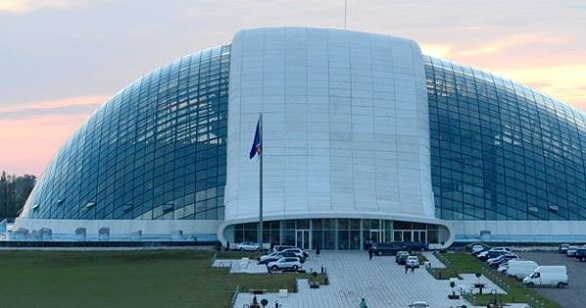Georgia’s Parliament discusses AA ratification

Committee hearings of Georgia’s ratification of the Association Agreement (AA) have been launched in the Parliament of Georgia, one day before the document is ratified.
Tomorrow, July 18, Parliament of Georgia is expected to ratify the AA, which includes the Deep and Comprehensive Free Trade Area (DCFTA) in front of local and international observers, including the Foreign Ministers of Latvia and Bulgaria.
The AA, which included the Deep and Comprehensive Free Trade Area (DCFTA), was signed together with the European Union (EU) last month with the aim of setting up an all-embracing framework to conduct bilateral relations.
Georgia’s Minister of Foreign Affairs Maia Panjikidze opened the committee hearings today and emphasized the AA was "an innovative, new generation document” which gave Georgia an opportunity to get closer with EU and continue establishing its values in the country.
"This is a plan of modernisation; this is an agreement which our country has chosen voluntarily and which will give the country an opportunity to become more developed, attractive and be built upon all the core values, on which a democratic state is based,” Panjikidze said at the joint hearing of three committees including legal issues, human rights protection and defence and security.
Panjikidze further expressed her appreciation to everyone who had worked on the document in recent years and said the AA would bring many benefits to Georgia.The country’s Foreign Minister also spoke about how the AA would be implemented in Georgia.
In response, Parliament Members appeared interested in the opportunities the AA would offer in terms of labour migration and bring the country’s systems into closer alignment with EU standards and legislation.
In addition, MPs asked if the AA implied specific changes in the fields of defence and security.
At a later joint hearing between three other committees – Foreign Relations, Diaspora and Territorial Integrity – Panjikidze was asked whether the AA would have an effect on Georgia’s two breakaway regions including South Ossetia and Abkhazia-related issues.
Panjikidze noted the agreement anticipated further expanding cooperation between the EU and Georgia on foreign relations and internal security.
This particularly implied political dialogue would take place on following issues: territorial integrity and strengthening of sovereignty, peaceful resolution of conflicts, international stability and security, crisis management, proliferation of weapons of mass destruction, regional security, protection of minority rights, cooperation in security and defence.
Meanwhile, Deputy Minister of Economy and Sustainable Development of Georgia Mikheil Janelidze introduced details of the DCFTA to MPs. This part of the AA is expected to be implemented from September 1.
Janelidze believed the zero custom tariffs for trade between the EU and Georgia was one of the main benefits of the DCFTA.
Ultimately, Georgia and the EU will eliminate duties on 100 percent and 99.9 percent (in trade value), respectively, of their imports from the other party.
However, Janelidze said the DCFTA defined several key requirements that could be completed in accordance to the schedule within eight years after the agreement comes into force.
 Tweet
Tweet  Share
Share